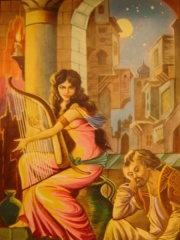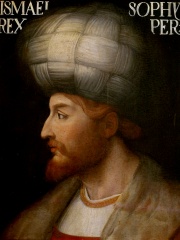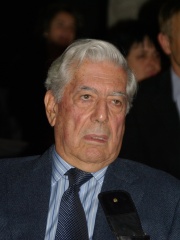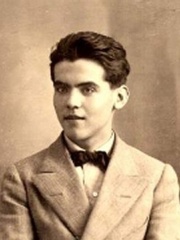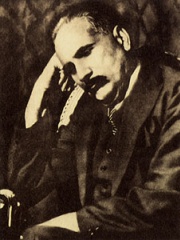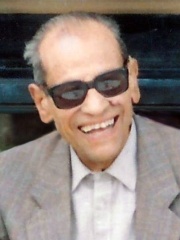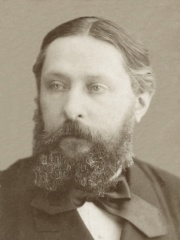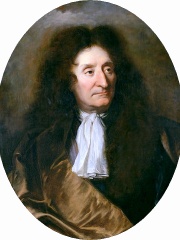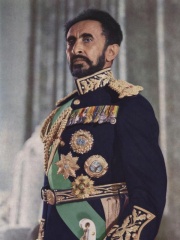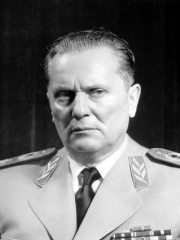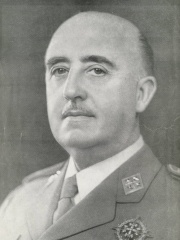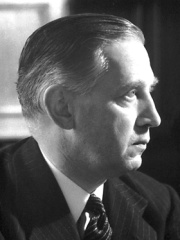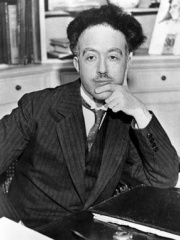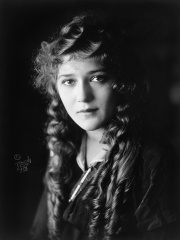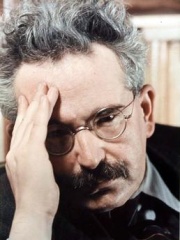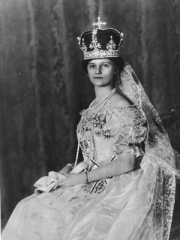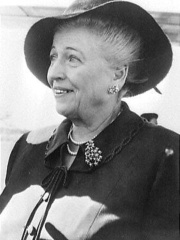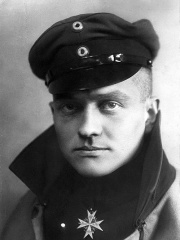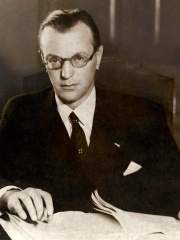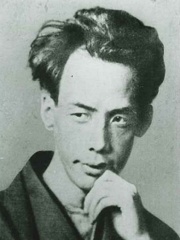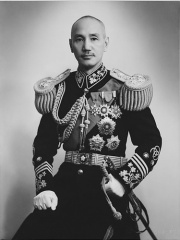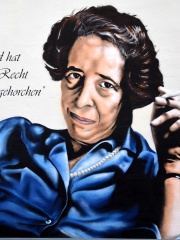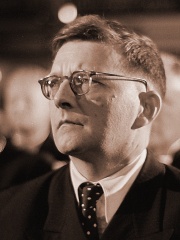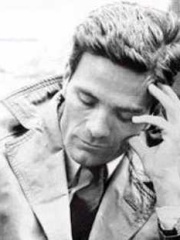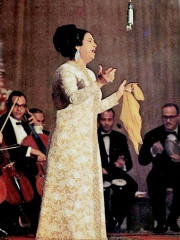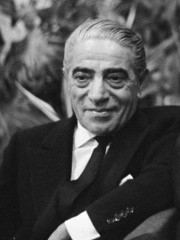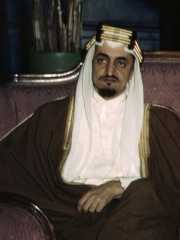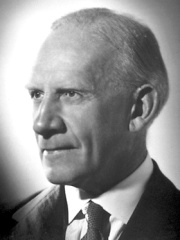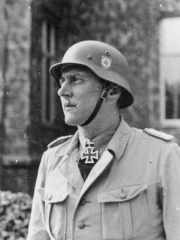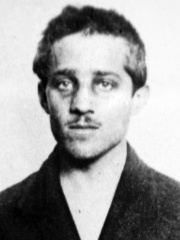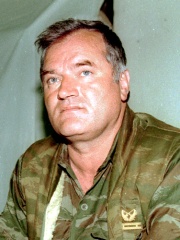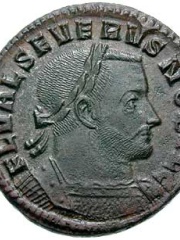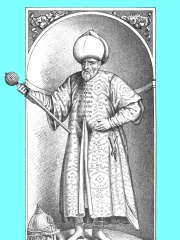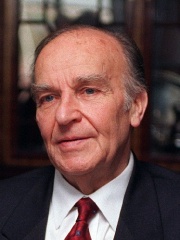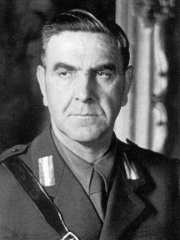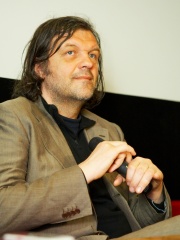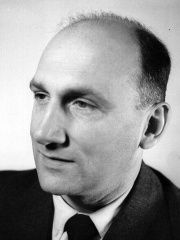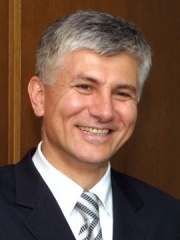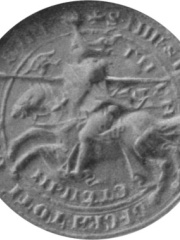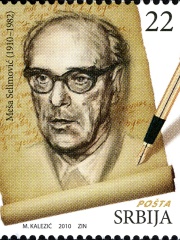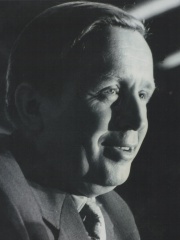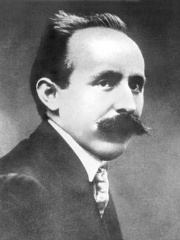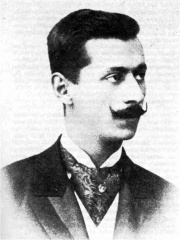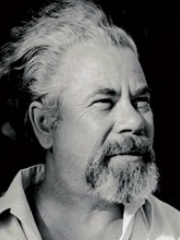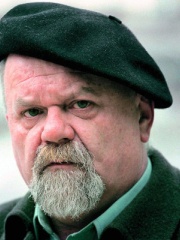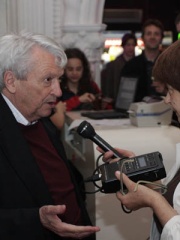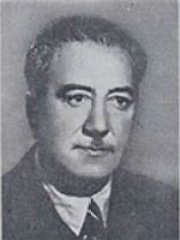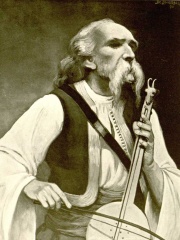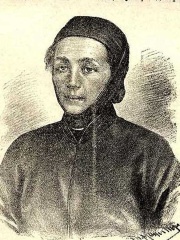Writer
Ivo Andrić
1892 - 1975

 Ivo Andrić
Ivo Andrić
Ivo Andrić (Serbian Cyrillic: Иво Андрић, pronounced [ǐːʋo ǎːndritɕ]; born Ivan Andrić; 9 October 1892 – 13 March 1975) was a Yugoslav novelist, poet and short story writer who won the Nobel Prize in Literature in 1961. His writings dealt mainly with life in his native Bosnia under Ottoman rule. Born in Travnik in Austria-Hungary, modern-day Bosnia and Herzegovina, Andrić attended high school in Sarajevo, where he became an active member of several South Slav national youth organizations. Following the assassination of Archduke Franz Ferdinand in June 1914, Andrić was arrested and imprisoned by the Austro-Hungarian police, who suspected his involvement in the plot. Read more on Wikipedia
His biography is available in 89 different languages on Wikipedia (down from 90 in 2024). Ivo Andrić is the 124th most popular writer (down from 121st in 2024), the 2nd most popular biography from Bosnia and Herzegovina and the most popular Bosnian, Herzegovinian Writer.
Ivo Andrić was a Nobel Prize-winning Bosnian writer. He is most famous for his novel The Bridge on the Drina, which is about the Ottoman Empire's occupation of Bosnia and Herzegovina.
Memorability Metrics
Page views of Ivo Andrić by language
Among Writers
Among writers, Ivo Andrić ranks 124 out of 7,302. Before him are Hafez, Rainer Maria Rilke, Ismail I, Mario Vargas Llosa, Federico García Lorca, and Muhammad Iqbal. After him are Naguib Mahfouz, Jane Austen, Ammianus Marcellinus, Apuleius, Sully Prudhomme, and Jean de La Fontaine.
Most Popular Writers in Wikipedia
Go to all RankingsHafez
1325 - 1389
HPI: 80.96
Rank: 118
Rainer Maria Rilke
1875 - 1926
HPI: 80.94
Rank: 119
Ismail I
1487 - 1524
HPI: 80.93
Rank: 120
Mario Vargas Llosa
1936 - 2025
HPI: 80.93
Rank: 121
Federico García Lorca
1898 - 1936
HPI: 80.92
Rank: 122
Muhammad Iqbal
1877 - 1938
HPI: 80.65
Rank: 123
Ivo Andrić
1892 - 1975
HPI: 80.64
Rank: 124
Naguib Mahfouz
1911 - 2006
HPI: 80.63
Rank: 125
Jane Austen
1775 - 1817
HPI: 80.62
Rank: 126
Ammianus Marcellinus
330 - 395
HPI: 80.61
Rank: 127
Apuleius
125 - 170
HPI: 80.60
Rank: 128
Sully Prudhomme
1839 - 1907
HPI: 80.51
Rank: 129
Jean de La Fontaine
1621 - 1695
HPI: 80.50
Rank: 130
Contemporaries
Among people born in 1892, Ivo Andrić ranks 8. Before him are Haile Selassie, Josip Broz Tito, Francisco Franco, Edward Victor Appleton, Louis de Broglie, and Mary Pickford. After him are Walter Benjamin, Zita of Bourbon-Parma, Pearl S. Buck, Manfred von Richthofen, Arthur Seyss-Inquart, and Ryūnosuke Akutagawa. Among people deceased in 1975, Ivo Andrić ranks 6. Before him are Haile Selassie, Chiang Kai-shek, Francisco Franco, Hannah Arendt, and Dmitri Shostakovich. After him are Pier Paolo Pasolini, Umm Kulthum, Aristotle Onassis, Faisal of Saudi Arabia, Robert Robinson, and Otto Skorzeny.
Others Born in 1892
Go to all RankingsHaile Selassie
POLITICIAN
1892 - 1975
HPI: 86.85
Rank: 2
Josip Broz Tito
POLITICIAN
1892 - 1980
HPI: 86.53
Rank: 3
Francisco Franco
POLITICIAN
1892 - 1975
HPI: 85.72
Rank: 4
Edward Victor Appleton
PHYSICIST
1892 - 1965
HPI: 83.64
Rank: 5
Louis de Broglie
PHYSICIST
1892 - 1987
HPI: 82.00
Rank: 6
Mary Pickford
ACTOR
1892 - 1979
HPI: 81.55
Rank: 7
Ivo Andrić
WRITER
1892 - 1975
HPI: 80.64
Rank: 8
Walter Benjamin
PHILOSOPHER
1892 - 1940
HPI: 78.79
Rank: 9
Zita of Bourbon-Parma
COMPANION
1892 - 1989
HPI: 78.14
Rank: 10
Pearl S. Buck
WRITER
1892 - 1973
HPI: 77.88
Rank: 11
Manfred von Richthofen
MILITARY PERSONNEL
1892 - 1918
HPI: 76.98
Rank: 12
Arthur Seyss-Inquart
POLITICIAN
1892 - 1946
HPI: 76.27
Rank: 13
Ryūnosuke Akutagawa
WRITER
1892 - 1927
HPI: 75.67
Rank: 14
Others Deceased in 1975
Go to all RankingsHaile Selassie
POLITICIAN
1892 - 1975
HPI: 86.85
Rank: 1
Chiang Kai-shek
MILITARY PERSONNEL
1887 - 1975
HPI: 86.25
Rank: 2
Francisco Franco
POLITICIAN
1892 - 1975
HPI: 85.72
Rank: 3
Hannah Arendt
PHILOSOPHER
1906 - 1975
HPI: 82.29
Rank: 4
Dmitri Shostakovich
COMPOSER
1906 - 1975
HPI: 82.02
Rank: 5
Ivo Andrić
WRITER
1892 - 1975
HPI: 80.64
Rank: 6
Pier Paolo Pasolini
FILM DIRECTOR
1922 - 1975
HPI: 79.68
Rank: 7
Umm Kulthum
SINGER
1898 - 1975
HPI: 79.44
Rank: 8
Aristotle Onassis
BUSINESSPERSON
1906 - 1975
HPI: 79.38
Rank: 9
Faisal of Saudi Arabia
POLITICIAN
1906 - 1975
HPI: 78.51
Rank: 10
Robert Robinson
CHEMIST
1886 - 1975
HPI: 77.85
Rank: 11
Otto Skorzeny
MILITARY PERSONNEL
1908 - 1975
HPI: 77.53
Rank: 12
In Bosnia and Herzegovina
Among people born in Bosnia and Herzegovina, Ivo Andrić ranks 2 out of 375. Before him are Gavrilo Princip (1894). After him are Ratko Mladić (1942), Valerius Severus (300), Sokollu Mehmed Pasha (1505), Alija Izetbegović (1925), Ante Pavelić (1889), Emir Kusturica (1954), Vladimir Prelog (1906), Goran Bregović (1950), Zoran Đinđić (1952), and Tvrtko I of Bosnia (1338).
Others born in Bosnia and Herzegovina
Go to all RankingsGavrilo Princip
EXTREMIST
1894 - 1918
HPI: 80.84
Rank: 1
Ivo Andrić
WRITER
1892 - 1975
HPI: 80.64
Rank: 2
Ratko Mladić
MILITARY PERSONNEL
1942 - Present
HPI: 79.73
Rank: 3
Valerius Severus
POLITICIAN
300 - 307
HPI: 77.80
Rank: 4
Sokollu Mehmed Pasha
POLITICIAN
1505 - 1579
HPI: 77.24
Rank: 5
Alija Izetbegović
POLITICIAN
1925 - 2003
HPI: 76.98
Rank: 6
Ante Pavelić
POLITICIAN
1889 - 1959
HPI: 76.53
Rank: 7
Emir Kusturica
FILM DIRECTOR
1954 - Present
HPI: 75.34
Rank: 8
Vladimir Prelog
CHEMIST
1906 - 1998
HPI: 75.15
Rank: 9
Goran Bregović
MUSICIAN
1950 - Present
HPI: 73.47
Rank: 10
Zoran Đinđić
POLITICIAN
1952 - 2003
HPI: 73.16
Rank: 11
Tvrtko I of Bosnia
POLITICIAN
1338 - 1391
HPI: 72.88
Rank: 12
Among Writers In Bosnia and Herzegovina
Among writers born in Bosnia and Herzegovina, Ivo Andrić ranks 1. After him are Meša Selimović (1910), Branko Ćopić (1915), Petar Kočić (1877), Jovan Dučić (1871), Aleksa Šantić (1868), Mak Dizdar (1917), Abdulah Sidran (1944), Predrag Matvejević (1932), Isak Samokovlija (1889), Filip Višnjić (1767), and Staka Skenderova (1828).
Ivo Andrić
1892 - 1975
HPI: 80.64
Rank: 1
Meša Selimović
1910 - 1982
HPI: 67.68
Rank: 2
Branko Ćopić
1915 - 1984
HPI: 63.57
Rank: 3
Petar Kočić
1877 - 1916
HPI: 63.49
Rank: 4
Jovan Dučić
1871 - 1943
HPI: 63.25
Rank: 5
Aleksa Šantić
1868 - 1924
HPI: 63.02
Rank: 6
Mak Dizdar
1917 - 1971
HPI: 62.30
Rank: 7
Abdulah Sidran
1944 - 2024
HPI: 62.02
Rank: 8
Predrag Matvejević
1932 - 2017
HPI: 61.82
Rank: 9
Isak Samokovlija
1889 - 1955
HPI: 61.70
Rank: 10
Filip Višnjić
1767 - 1834
HPI: 59.56
Rank: 11
Staka Skenderova
1828 - 1891
HPI: 58.70
Rank: 12
